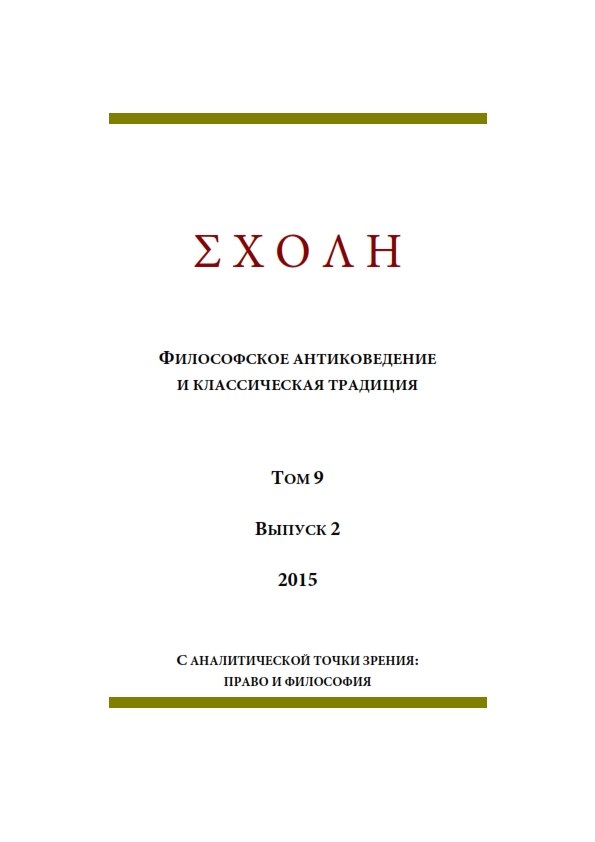АРИСТОТЕЛЬ И АЛЕКСАНДР АФРОДИСИЙСКИЙ О РОСТЕ И РАСТУЩЕМ
ARISTOTLE AND ALEXANDER OF APHRODISIAS ON GROWTH AND GROWING
Author(s): Valery V. PetroffSubject(s): Metaphysics, Ancient Philosphy
Published by: Новосибирский государственный университет
Keywords: Aristotle; Alexander of Aphrodisias; growth; change; generation; form (eidos); identity; De generatione et corruptione;
Summary/Abstract: The article investigates the tradition of discussions focusing on growth and growing started by Aristotle and continued by Alexander of Aphrodisias, including the polemics concerning the identity of indiviual’s changing body. It is shown that the questions of individual identity discussed already by Epicharmus and Plato, are treated in Aristotle in terms of the phenomenon of growth. In the De generatione et corruptione Aristotle argues that growth, being quantitative change, differs from the coming-to-be and qualitative alteration. What retains in the changing body is its eidos, which is compared with elastic pipe (aulos) imposing form on the water flowing through it. The related arguments from Alexander of Aphrodisias’ discussions of growth and growing are under consideration. According to Alexander, eidos, as an unchangeable nature (due to the fact that it preserves its identity) may be subject of accidental changes (in this case, it varies in size). The author indicates relevant doctrinal and terminological parallels between Aristotle and Alexander.
Journal: ΣΧΟΛΗ. Философское антиковедение и классическая традиция
- Issue Year: IX/2015
- Issue No: 2
- Page Range: 393-402
- Page Count: 10
- Language: Russian

